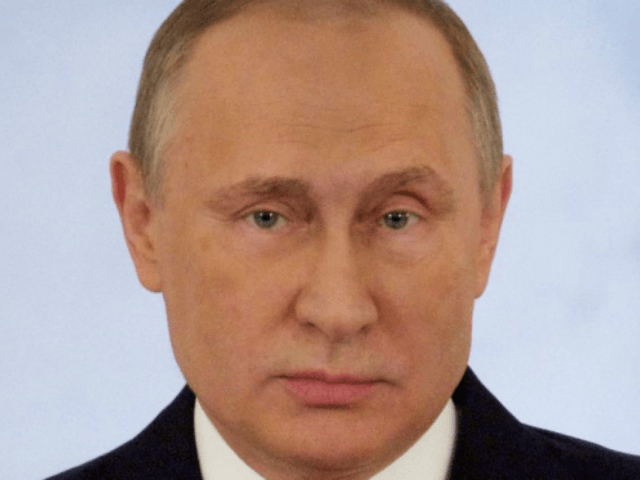China’s state publication, Global Times, published an analysis Thursday suggesting that Russians should reconsider granting President Vladimir Putin perpetual rule over their country, a query that may indicate some doubt regarding Putin’s rule in Chinese communist circles.
While the article, titled “Banning Putin Rival May Have Long-Term Implication,” concludes that it is “legally reasonable” for Putin to have banned his top rival Alexei Navalny from the presidential race, author Yang Cheng concludes that the true question in this year’s presidential race is not who will win, but “whether it’s a reasonable political norm that Russia should only be ruled by Putin.”
Noting that, should he win, Putin will become the longest-ruling head of government in Russia since Joseph Stalin, Yang argues that Putin has more than just Navalny, a longtime political opponent and protest organizer, to worry about.
“The latest polls by the independent Levada Center last month showed that public support for the leaders of the Liberal Democratic Party and the Communist Party both stood at about 4 percent, compared with Navalny’s 2 percent,” the article notes. “This suggests that Navalny is not the biggest challenger to Putin.”
What’s more, Yang notes that Russians appear more engaged than ever against Putin, if the number of individuals applying for space on the presidential ballot is any indication. “Russia’s Central Election Commission has so far received 64 applications, a new high for the Putin era compared with 14 in 2012 and 15 in 2008,” the Global Times reports. While defining this as “good news for the Kremlin,” the Times clearly suggests that Putin should reflect on what such political energy means for his permanence in office.
Putin announced in December that he would seek re-election as president of Russia in 2018, this time as an independent candidate rather than a member of his United Russia Party. As of last month, Putin enjoyed an 80 percent approval rating and has barred rivals with any chance of winning from the ballot.
On top of that list of rivals is Navalny, the force behind significant anti-Putin protests in recent years. Navalny made a name for himself publishing the details of the corrupt lifestyles of many Putin cronies on platforms such as Twitter. Putin responded by arresting him for corruption and placing him under house arrest provisions that banned him from speaking to the media.
Due to his arrest, Navalny cannot appear on a Russian presidential ballot. Navalny denies the charges against him.
In December, Putin compared Navalny to former Georgian President Mikheil Saakashvili, who has launched his own anti-corruption campaign in Ukraine, arguing that questioning Russia’s oligarchs will lead to chaos on the streets.
The Chinese government appeared receptive to Putin’s presidential campaign when he announced it.
“The presidential election is Russia’s domestic affair. We respect President Putin’s personal decision to run for the election,” Foreign Ministry spokesman Geng Shuang said last month. “China firmly supports Russia’s efforts for national stability, development, and rejuvenation. We believe that the Russian presidential election will be carried out smoothly.”
Chinese communist leader Xi Jinping also launched a new initiative to strengthen ties with Russia this week. In a New Year message to Putin, Xi reportedly said he “is ready to join his Russian counterpart, Vladimir Putin, in consolidating political and strategic mutual trust, and expanding bilateral all-around pragmatic cooperation.”
“High-level communication between China and Russia has taken the lead in boosting the development of bilateral ties. In 2017, the Chinese and Russian heads of state maintained a high frequency of interaction and held five meetings,” Chinese Ambassador to Russia Li Hui said last week, before Xi’s statement reflecting the same policy.
Li referred to the Chinese-Russian relationship as “thriving.” Yet the two nations are regional rivals, in many cases vying for the loyalty of the same global players. This is particularly clear with North Korea, a state with which Russia has expressed growing interest in cooperating. Reports last month suggested that Russia has increased its oil exports to North Korea despite international sanctions on the rogue regime. Russia has overtly offered to mediate talks between North Korea and the United States, excluding North Korea’s patron state, China.

COMMENTS
Please let us know if you're having issues with commenting.